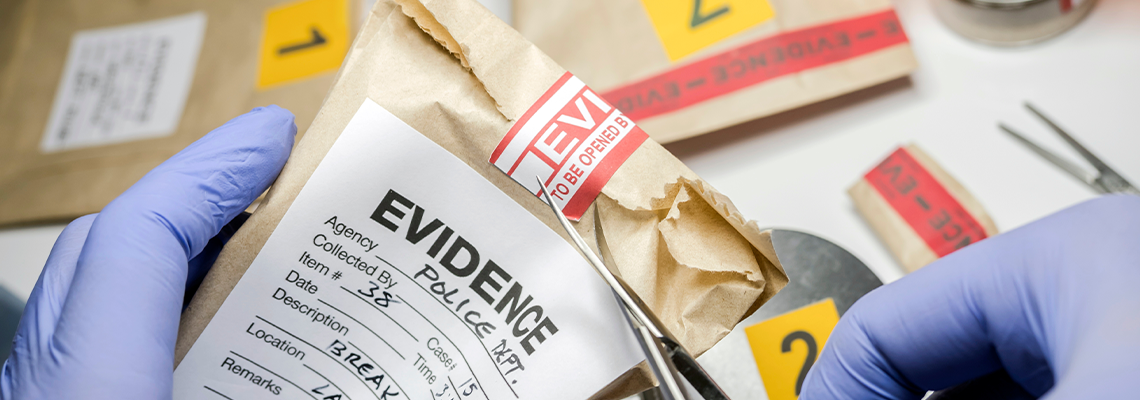
DNA Used as Evidence in California
DNA used as evidence has become more popular than ever. That is why understanding how DNA collected at the crime scene plays a critical role in proving a crime, and also the times that DNA proof can be denied. From our office in Long Beach, California, our firm—McCready Law Group—will help you prepare for and fight for you during the trial process. We also serve those throughout Cypress Hill and Lakewood, so if you need advocacy and legal guidance, reach out to our firm today.
How Is DNA Collected and Preserved?
Police and investigators collect DNA samples from a source such as blood, bodily fluids (i.e., semen or saliva), hair, and skin. DNA sample collection must be done with extreme caution to prevent contamination.
For instance, an investigator touching blood samples with their bare hands may lead to contamination of that sample. Similarly, DNA samples may become unusable if police or investigators step on them, spill something, or fail to isolate samples.
Biological evidence, such as hair, does not require complex preservation. DNA evidence kept in air-tight containers can last for a year without significant degradation. However, special care must be taken to ensure there is no contamination.
How Is DNA Used as Evidence in California?
Biological evidence used in court is like using fingerprints. DNA is unique to each individual unless they have an identical twin. These unique features are used to distinguish one individual from another.
The most common method of DNA evidence is called Restriction Fragment Length Polymorphism Technique (RFLP). This method compares DNA evidence collected at the crime scene with a suspect’s unique DNA. The aim is to match samples to prove a suspect’s culpability.
For example, blood found on a murder weapon can be compared to match both the victim and the suspect. Experts then interpret the results to confirm the likelihood that the samples match the victim’s and suspect’s DNA.
Prosecutors seek a high match percentage, while suspects hinge their defenses on inaccurate results. As a result, expert testimony is key to understanding the validity of DNA evidence in each case. And while DNA evidence is not ironclad, it can significantly tip the scales to one side or the other.
How Effective and Accurate is DNA Evidence in California?
DNA evidence’s effectiveness and accuracy largely depend on individual circumstances. Therein lie the challenge prosecutors and investigators face. The effectiveness of DNA evidence depends on its collection at the crime scene and preservation. Suspects can challenge collection and preservation to dismiss DNA evidence’s effectiveness.
Regarding accuracy, DNA evidence is never 100% accurate. In general, DNA evidence is already contaminated at the crime scene. For instance, blood removed from clothing already has some type of contamination from the clothing itself. In contrast, a blood sample extracted from a suspect in a lab is perfectly clean. Therefore, matching both samples can be extremely complicated.
In court, expert witnesses must give their opinion regarding the likelihood that biological evidence collected at the crime scene matches a suspect. That is why criminal defense attorneys hire their own DNA experts to review samples and test results to contrast the opinion of prosecution experts.
This is why you need a skilled attorney on your side. An attorney can fight for your rights and inform you on possible consequences. And if a prosecutor finds DNA against you, your attorney will help you find a way to fight against it, and there are several ways to know if evidence against you is valid or not.
Can DNA Evidence Be Used in Post-Conviction in California?
Yes, DNA evidence can be used in post-conviction proceedings. For example, convicted individuals can use DNA evidence during an appeal process. The appeal may hinge on a lack of DNA testing used to prove or disprove a convicted individual’s culpability. If DNA evidence proves that the convicted individual’s DNA does not match that found at the crime scene, the sentence may be overturned.
Professional criminal defense attorneys work with DNA experts to review test results to ensure that clients exercise their right to a fair defense. Please remember that any doubt cast on DNA evidence can lead to samples being ruled as inadmissible as evidence.
Finding the Right Criminal Defense Attorney in California
At the McCready Law Group, we fight for our client’s right to a fair defense. We understand the value of DNA evidence, so we strive to ensure it serves the right purpose. We don’t allow prosecutors to take advantage of the situation. We work hard to ensure our clients’ rights are protected. Don’t go at it alone, and call today to get the legal counsel you need.
